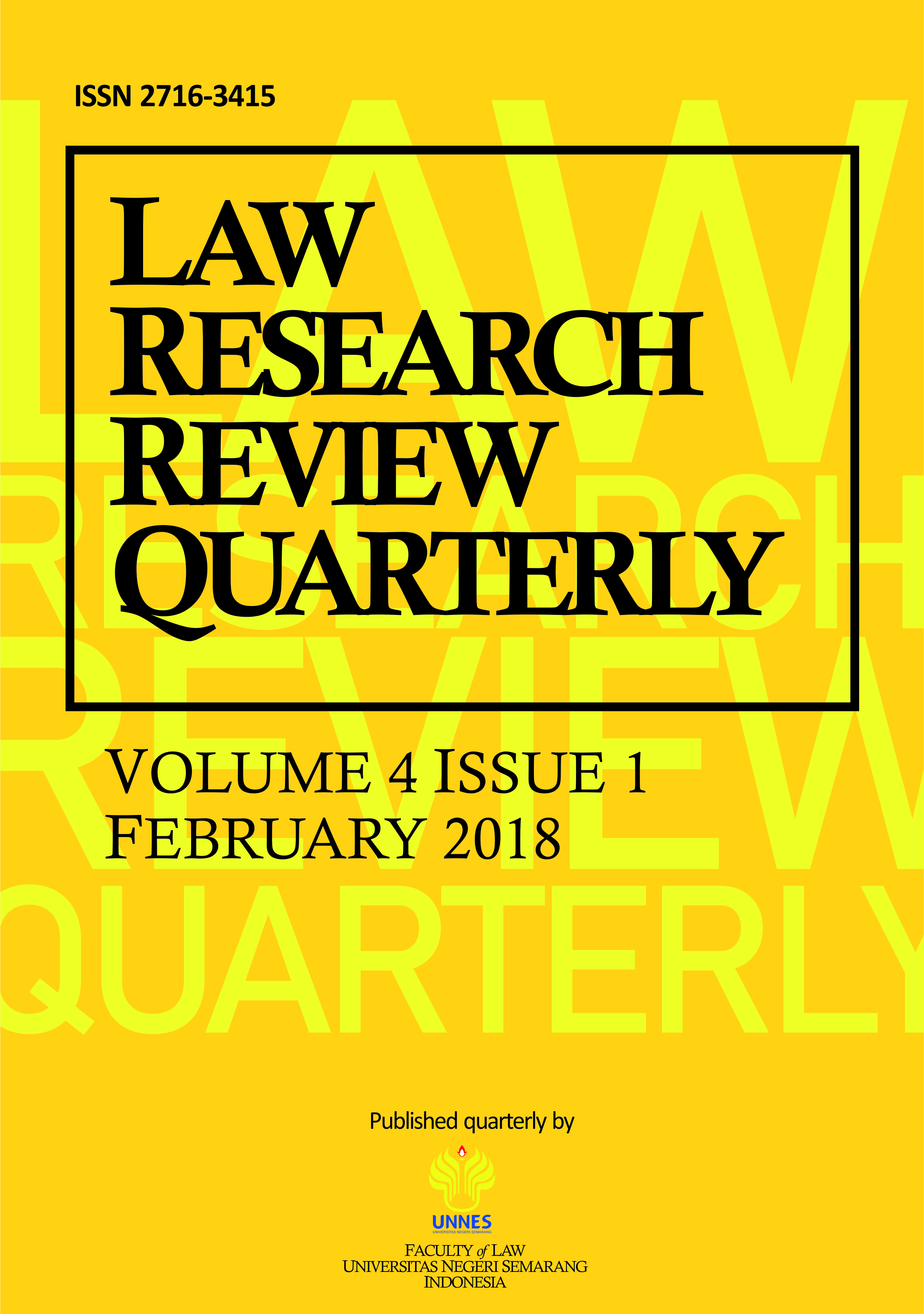Castration Chemical Sanction Policy for Perpetrators of Sexual Violence Against Children of the Study of Criminal Law Politics
Main Article Content
Abstract
Article 28 B paragraph (2) of the Constitution of the Republic of Indonesia confirms that the State guarantees the right of children to survival, growth and development as well as protection from violence and discrimination. Along with the rapid flow of globalization and the negative impact of the development of information technology and telecommunications, sexual violence against children is increasing. The Indonesian Child Protection Commission (KPAI), said that in 2015 there were 218 cases, in 2016 there were 120 cases, and in 2017 there were 116 cases. To address the phenomenon of sexual violence against children, the President of Indonesia issued Government Regulation in Lieu of Law No. 17 of 2016, which was subsequently upgraded to become Law, namely Law No. 17 of 2016 concerning Establishment of Government Regulation in Lieu of Law No. 1 of 2016 concerning the second amendment to Law No. 23 of 2002 concerning Child Protection becomes a law. The contents of criminal charges against perpetrators of sexual violence against children, can be subject to additional crimes in the form of announcements of the identity of the perpetrators, and can be subjected to actions in the form of chemical castration accompanied by rehabilitation and installation of electronic detection devices. The basis for considering the issuance of this Perppu minimizes sexual crimes, gives a deterrent effect for sexual offenders and prevents the intention of everyone to commit sexual crimes.
Article Details
All writings published in this journal are personal views of the authors and do not represent the views of this journal and the author's affiliated institutions. Author(s) are retain the copyrights of the Article. However, before publishing, it is required to obtain written confirmation from Author(s) in order to ensure the originality (Author Statement of Originality). The statement is to be signed by at least one of the authors who have obtained the assent of the co-author(s) where applicable.This work licensed under a Creative Commons Attribution-ShareAlike 4.0 International (CC BY-SA 4.0)
References
Nawawi Arief, Barda (1994). Kebijakan Legislatif Dalam Penanggulangan Kejahatan dengan Pidana Penjara. Semarang: CV Ananta.
---------------, (2011). Perkembangan Sistem Pemidanaan di Indonesia. Semarang: Pustaka Magister.
---------------, (2011). Bunga Rampai Kebijakan Hukum Pidana, Perkembangan Penyusunan Konsep KUHP Baru. Jakarta: Kencana Prenada Media Group.
---------------, (2012). Kebijakan Formulasi Ketentuan Pidana, Dalam Peraturan Perundang-undangan. Semarang: Pustaka Magister.
Muladi dan Barda Nawawi Arief. (1984). Teori-teori dan Kebijakan Pidana. Bandung: Alumni.
Nuzul Qur’aini Mardiya. (2017). “Penerapan Hukuman Kebiri Kimia Bagi Pelaku Kekerasan Seksualâ€, Jurnal Konstitusi, Volume 14, Nomor ,1 Maret 2017.
Sudarto. (1981). Hukum dan Hukum Pidana. Bandung: Alumni.
---------------. (1983). Hukum Pidana dan Perkembangan Masyarakat. Bandung: Sinar Baru.
Sumber Online
http://www.kpai.go.id/berita/tahun-2017-kpai-temukan-116-kasus-kekerasan-seksual-terhadap-anak/
https://nasional.tempo.co/read/774280/jokowi-terbitkan-perpu-kebiri-inilah-isi-lengkapnya
https://hellosehat.com/hidup-sehat/seks-asmara/mengenal-proses-kebiri-kimia/
http://www.antaranews.com/berita/566611/wapres-menghormati-keputusan-idi-tolak-eksekusikebiri?utm_source=related_news&utm_medium=related&utm_campaign=news
